When your interests include breeding chickens, one of your chief goals is to have a consistent source of fresh eggs and meat. Of course, the hens in the coop always keep their end of the bargain. But newbie chicken breeders may begin to wonder, “Do chickens lay eggs in winter?”
This article will cover
- How Do Chickens Lay Eggs In Winter?
- Chicken Breeds That Lay Eggs During Winter
- Essential Tips For Getting Your Chicken Coop Ready for Winter
- Molting Affects Egg Production
- Precautions On Adding Heat On The Coop During Winter Time
- Bonus: Boredom Busters for Chickens During Winter
How Do Chickens Lay Eggs In Winter?
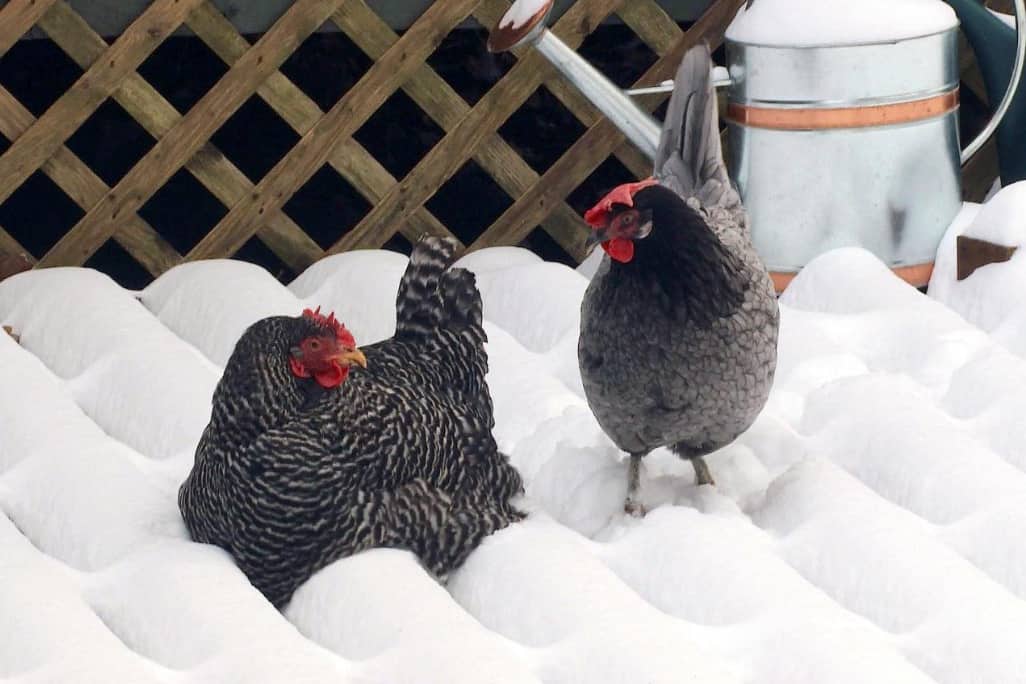
Beginners may think also wonder if they can collect eggs from their poultry all year round. Do chickens lay eggs even in the wintertime?
Fowls can adapt even to winter seasons to survive severe cold climates as long as their breeder sets these feathered animals for victory. With proper conditions and the right chicken breed temperament, your mother chickens can lay eggs during wintertime. But, it’s not that easy because there are some things to consider when you want fresh eggs all year round.
Summer days have more hours of sunlight, so they are longer than winter days. People usually don’t pay much attention to the maximum and minimum daylight hours as we’re all too busy with our daily business. The lengthening and shortening of the days often go unnoticed by us because they happen at a slow rate, but not your hens.
Your hens keep an eye on the hours of sunlight and regulate their egg-laying for that reason. Hens are at the peak of their egg production when there’s the most extended sunlight, and that’s the reason why summer is their best egg production season.
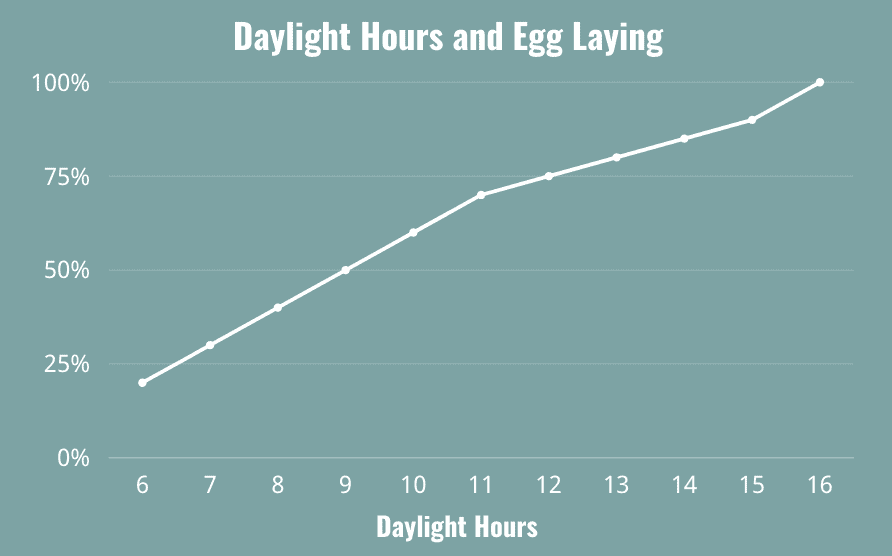
So yes, weather affects egg production through the temperature, light, and season. Chickens stop their egg production during winter if you let nature takes its course. Although you can wait for the spring to resume, you can continue the egg-laying process with artificial conditions during winter.
Chickens can lay eggs during the winter when their basic needs are all there for them. If your chickens have everything, they need during this period, hoping for eggs to continue is not a cruel expectation.
However, it’s crucial to note that the egg-laying process is exceptionally vigorous for your hens. So, it takes a toll on their body if they lay eggs the whole year-round. When you force your hens to lay eggs for a long time without rest, it can cause damage to their bodies.
Chicken Breeds That Lay Eggs During Winter
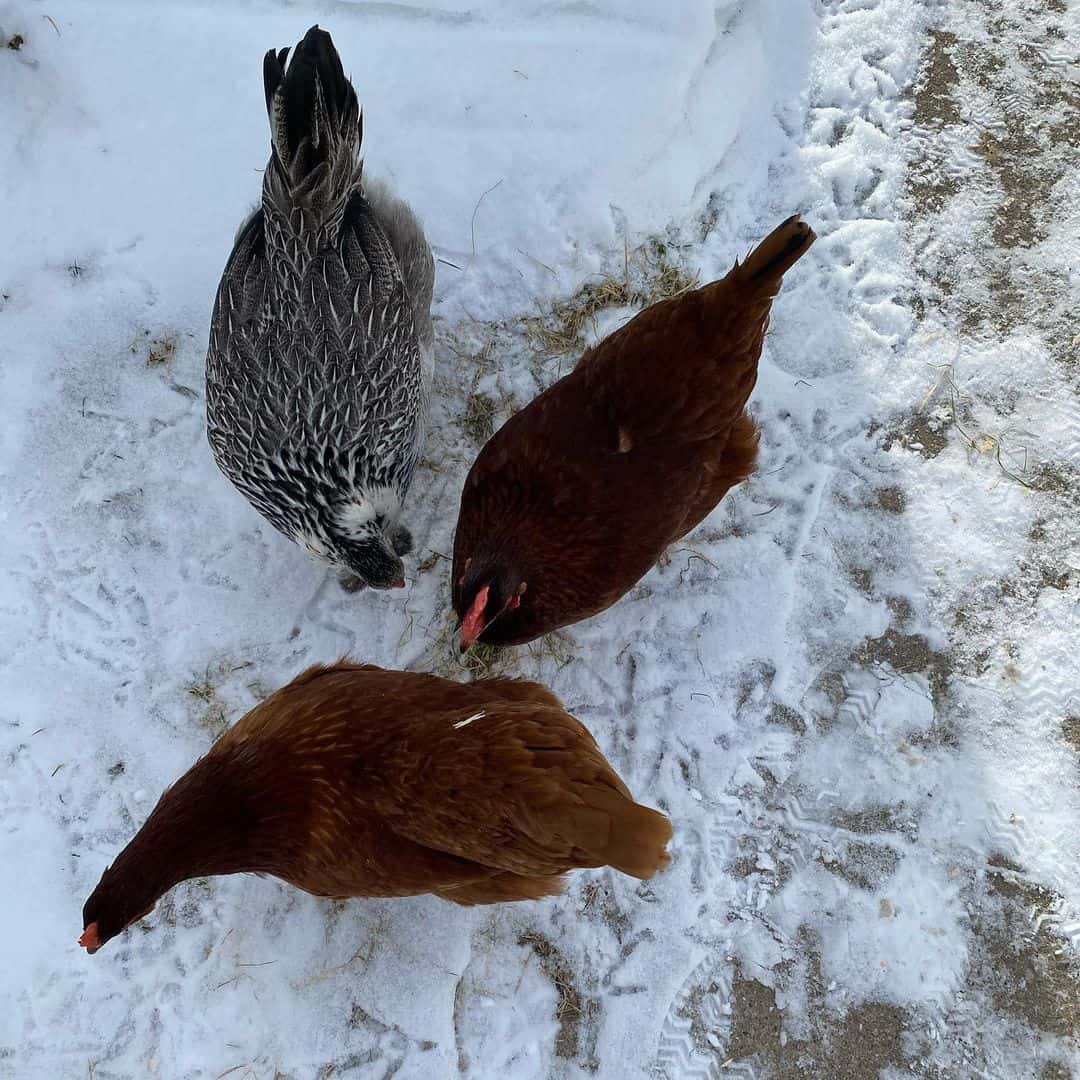
Rhode Island Red: This breed is superbly cold-hardy. Because of this chicken’s tight feathering and good fluff, you can find this breed wandering even in the most severe winter. Breeders need to check on these fowls’ comb and wattles regularly to keep them from getting frostbites.
Buckeye – This large dual-purpose chicken can survive severe winter and could scavenge well. Their thick plumage with lots of fluff under makes them warm.
Australorp – Because of their thick and close feather coat with lots of fluff underneath to keep them warm, this chicken breed also does well in frosty climates. But always pay attention to their combs and wattles during winter periods to prevent frostbites.
Orpington – This chicken that’s also excellent for an urban setting has lots of loose feathering. It keeps them warm in frosty months. However, a hen can die of chill immediately when its insulating feathers get wet.
Plymouth Rock – Their dense feathering helps them become cold hardy. Like other hard-hardy chicken breeds, their combs and wattles need a little attention as well.
Dominique – Hens from this breed are robust and cold hardy that can survive harsh winter well. Like most breeds on this list, their dense and loose feathering keeps them warm on winter days and nights. Just make sure their rose comb won’t get frostbitten.
Welsummer – This Dutch breed is exceptionally winter hardy and can lay gorgeous terracotta-colored eggs with a few light speckles.
Wyandotte – The hens are the best in egg production for cold climates, giving you four large brown eggs weekly, even during winter.
Delaware – These chickens are cold-hardy because of their thick plumage.
New Hampshire Red – The hens from this breed can produce three large eggs a week each, even during winter periods.
Sussex – Another heavy-bodied chicken with small combs also makes outstanding egg layers for colder weather.
Araucanas – If you don’t mind having blue and green eggs in your coop, these colorful birds are also productive in egg production, even during winter.
Essential Tips For Getting Your Chicken Coop Ready for Winter
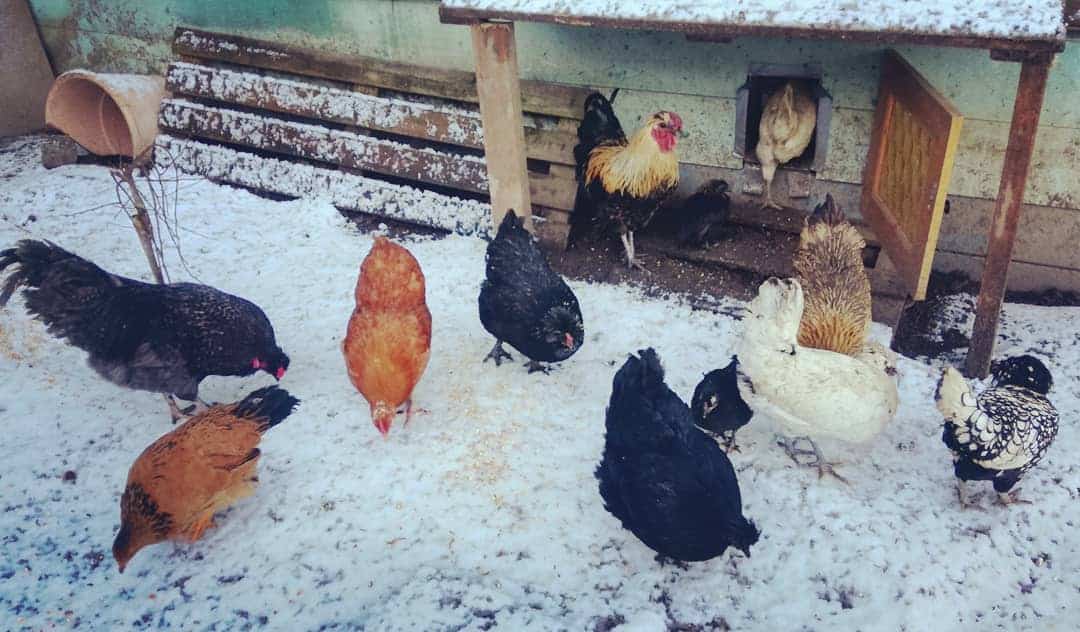
Below are the essential guides to winter-proof your chicken coop.
1. Clean the Entire Coop
Take away the bedding, scrub the poop and debris from the run, roosting spots, and nesting boxes.
2. Keep Vermins Out
Re-bolt any loose boards and plug mouse holes with hardware cloth.
3. Insulating the Coop
Attach an extra dense layer of fresh bedding because this will help keep the coop warmer. Also, straw is better than sand or shavings in insulating because it’s hollow and stores air.
4. Keep Wind and Snow Out
tack up plexiglass or plastic sheeting over hardware cloth or chicken wire coops. Ensure there’s still room for ventilation as lack of it is more dangerous than the colder climates to chickens.
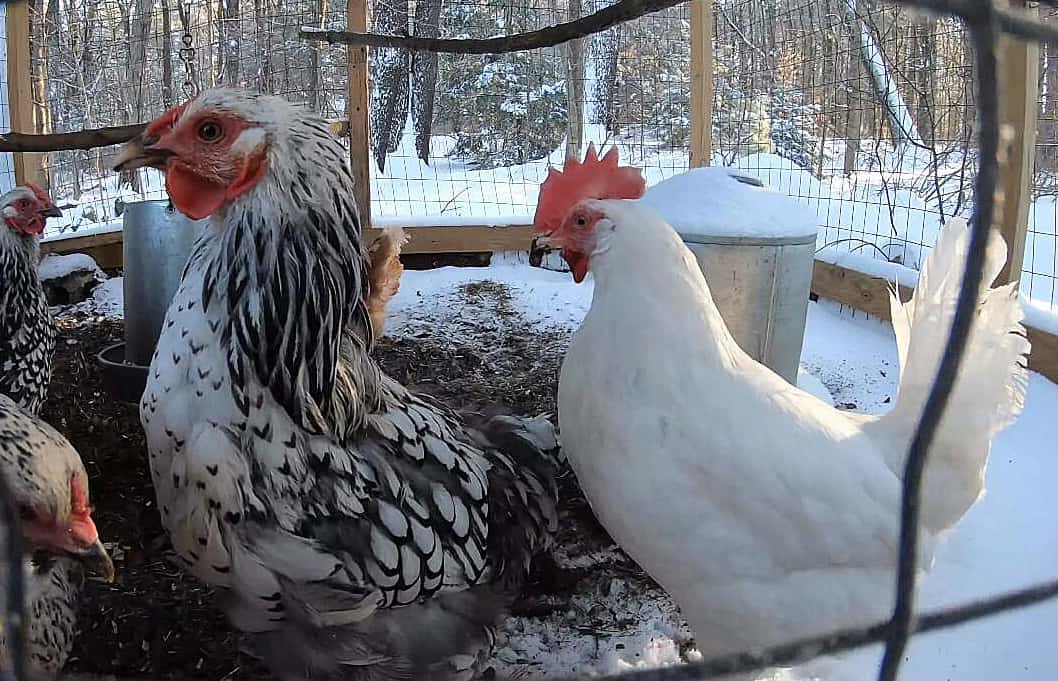
5. Heated Waterer
You can install a heated waterer or have a DIY for your coop by stuffing a metal cookie tin with a string of Christmas lights then positioning the metal waterer on the top. The lights will provide heat that will keep the water defrosted.
6. Wall Heater
To prevent frostbite, mount a safe ceramic wall heater. Take important note that you can only set the heater up ONLY for the period of most freezing times, such as 0 F or -15 C, to prevent frostbite.
8. Lights on a Timer
It’s best to attach a light to a timer that turns on before dawn so your hens can lay eggs throughout the winter. The hens require 14-16 hours of sunlight to lay eggs. Fewer hours of light will prompt the hens to spend extra hours sleeping instead of laying.
9. Number of Chickens per Square Foot
4 square feet per 1 chicken inside the coop. The number of chickens per square foot is the most vital method of keeping your chickens during wintertime. It’s because more chickens generate more heat, which in turn means more moisture.
But, make sure there’s a balance between the chickens to the square foot because either the coop will be colder or the humidity will be higher. More chickens in a small place will also generate high moisture, making chickens susceptible to frostbite and respiratory issues.
Molting Affects Egg Production
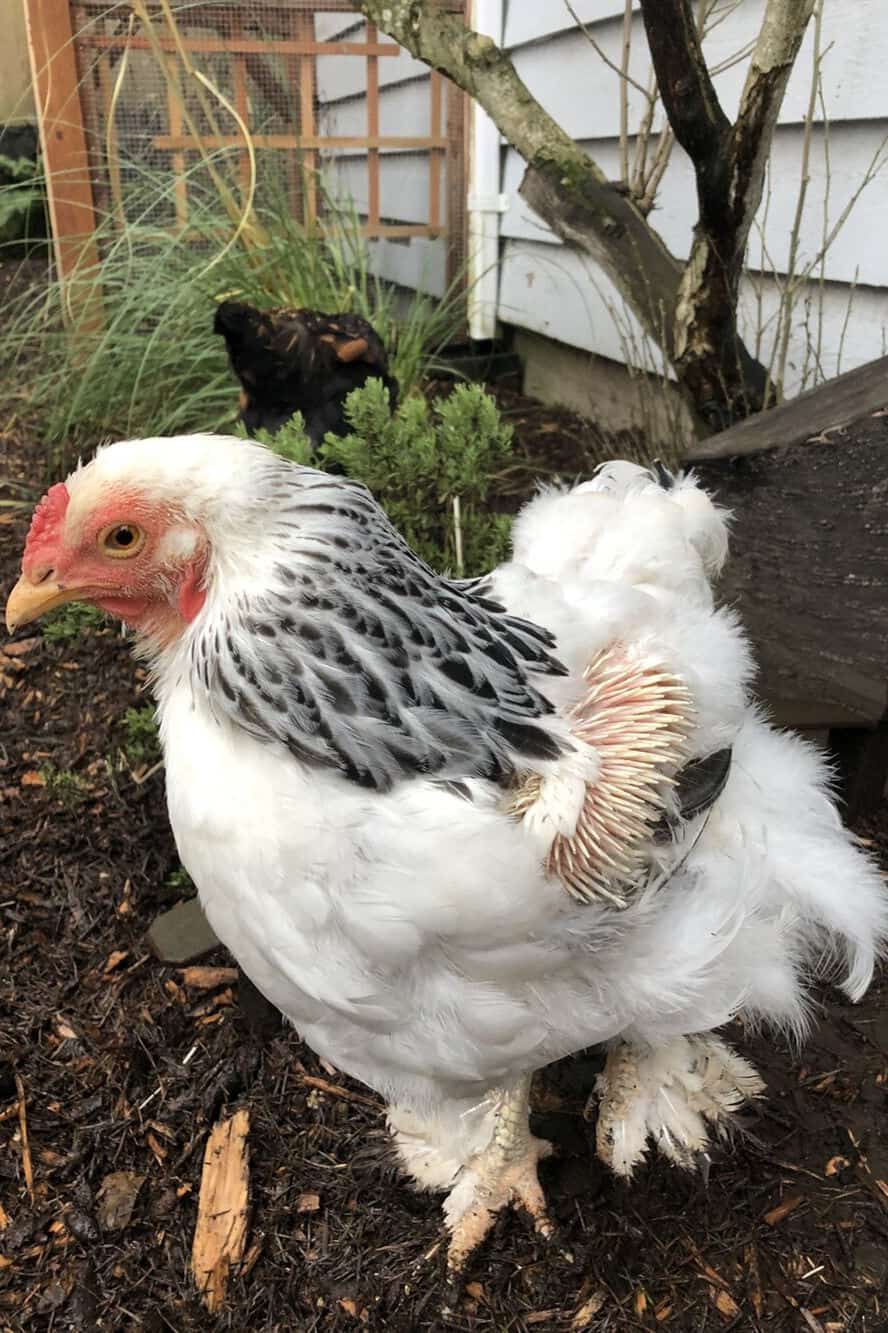
Chickens lose and regrow their feathers once a year. This process lasts 14 to 16 weeks, usually at the end of summer or early Autumn, and it’s called molting.
Chickens need more protein during molting because their feathers are 85% protein to assist them throughout this exhausting process. And during molting, their egg production slows down as the nutrients to laying produce new plumage. Plus, losing feathers and regrowing them is strenuous to chickens.
Hens, stop laying eggs until this process ends. And molting can go longer, from two to three or four months. Fortunately, there are many feed formulations to help provide more nutrition the chickens need during molting.
So, breeders balance the protein shortage by increasing it in the chickens’ diet by switching from 16 percent to a 20 percent layer feed. Also, providing more natural food like fly larvae or mealworms is a tremendous increase in the protein solution.
Precautions On Adding Heat On The Coop During Winter Time
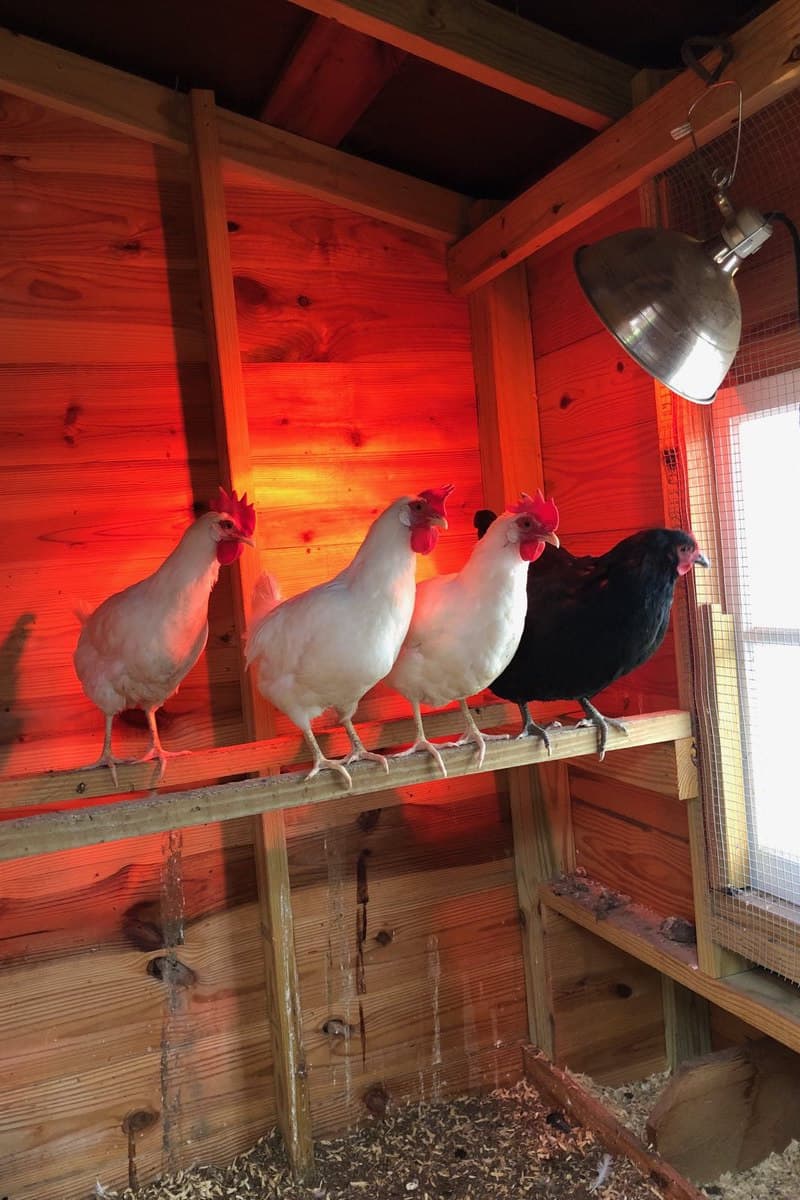
Consider the danger of fire accidents when adding light and heat to the coop. When the molting season is done, a chicken can trap warmth in their bodies, so they only need a coop with good ventilation, enclosed, clean, and not drafty. There are also several heat systems for the coops when you sense to stress over your fowls from long frosty days.
If you plan on attaching heat and light in the chicken coop, be prepared to have a backup plan when there’s a power outage or your heat system fails. When these problems occur, chickens saved in a heated coop may not survive during a frosty night because a sudden temperature change risks them.
Bonus: Boredom Busters for Chickens During Winter
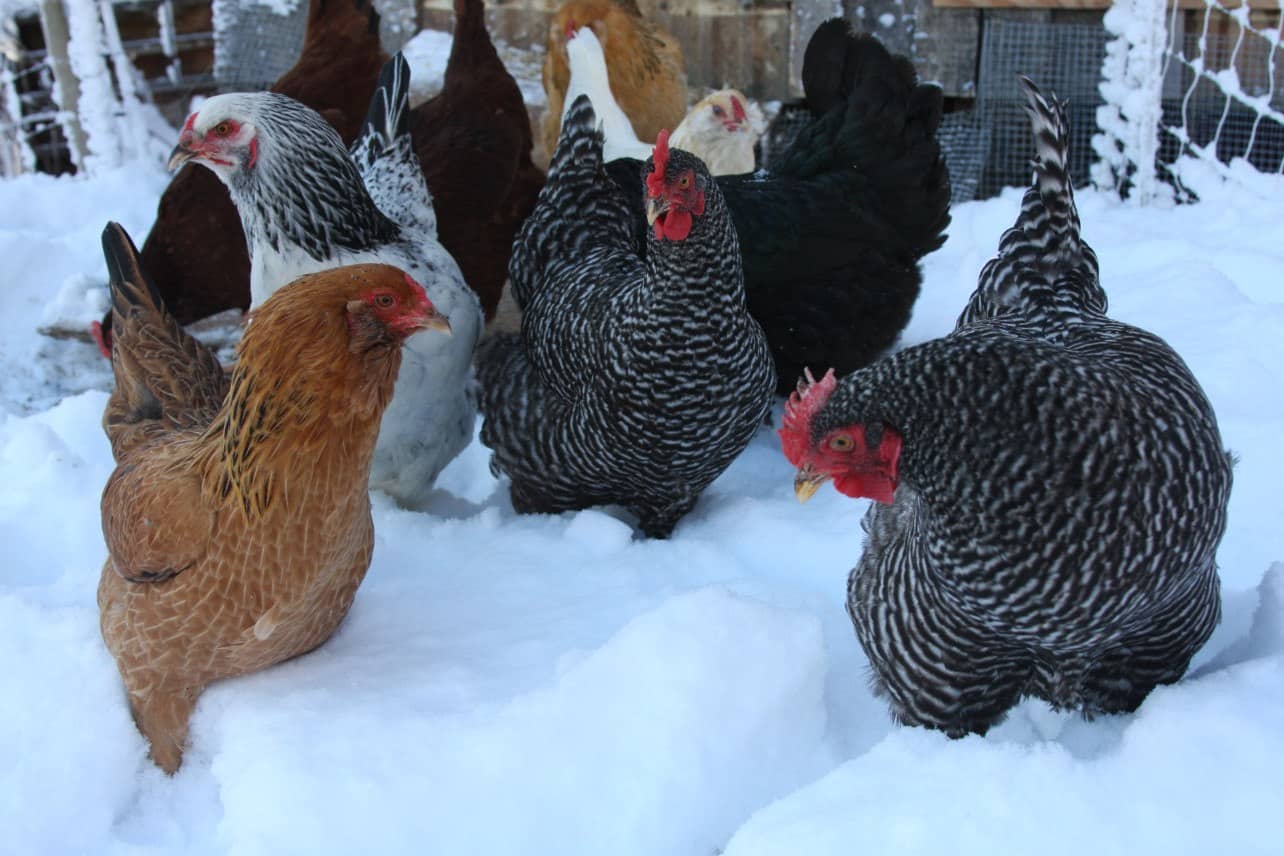
During bad weather days like winter periods, chickens hide inside the coop and tend to sleep longer. These feathered animals only go out to the covered run for food and water and then run back to the pen. So these boredom busters will keep your chickens busy during bad weather days.
- Pitch bails of straws or hays in the coop for your birds to play.
- Hang any vegetable like corn or cabbage with twine in the coop.
- In the non-drafty zones of the coop, attach a few chicken swings.
- Attach branches or ladders outside for more roosting.
- Toss treats in their beddings for them to forage.
- Supplement a dust bath inside the run or coop.
- Put a mirror for your hens to check themselves.
Summary
All these guides can help chickens lay eggs in the winter, but note that these birds are supposed to be resting during wintertime and recuperating from molting. The best way to take care of your chickens is to let nature takes its course.
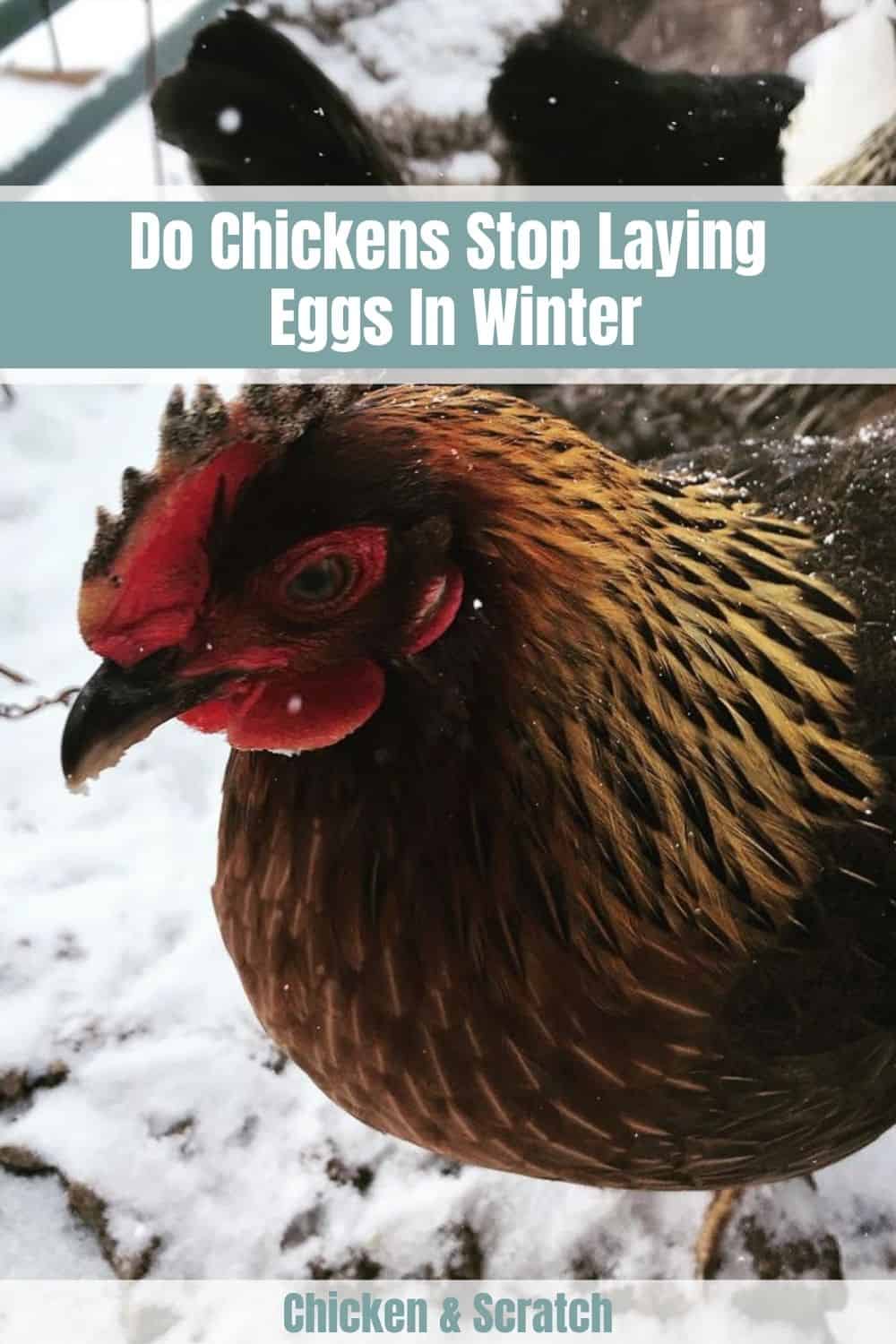

Joseph Hudson has been raising chickens for over 15 years. In 2018, he completed the Agriculture & Natural Resources program at Mt. San Antonio College. He currently raises over 1400 chickens on his 7.5-hectare farm. He keeps sharing his experience on raising healthy and happy chickens on Chicken Scratch The Foundry.
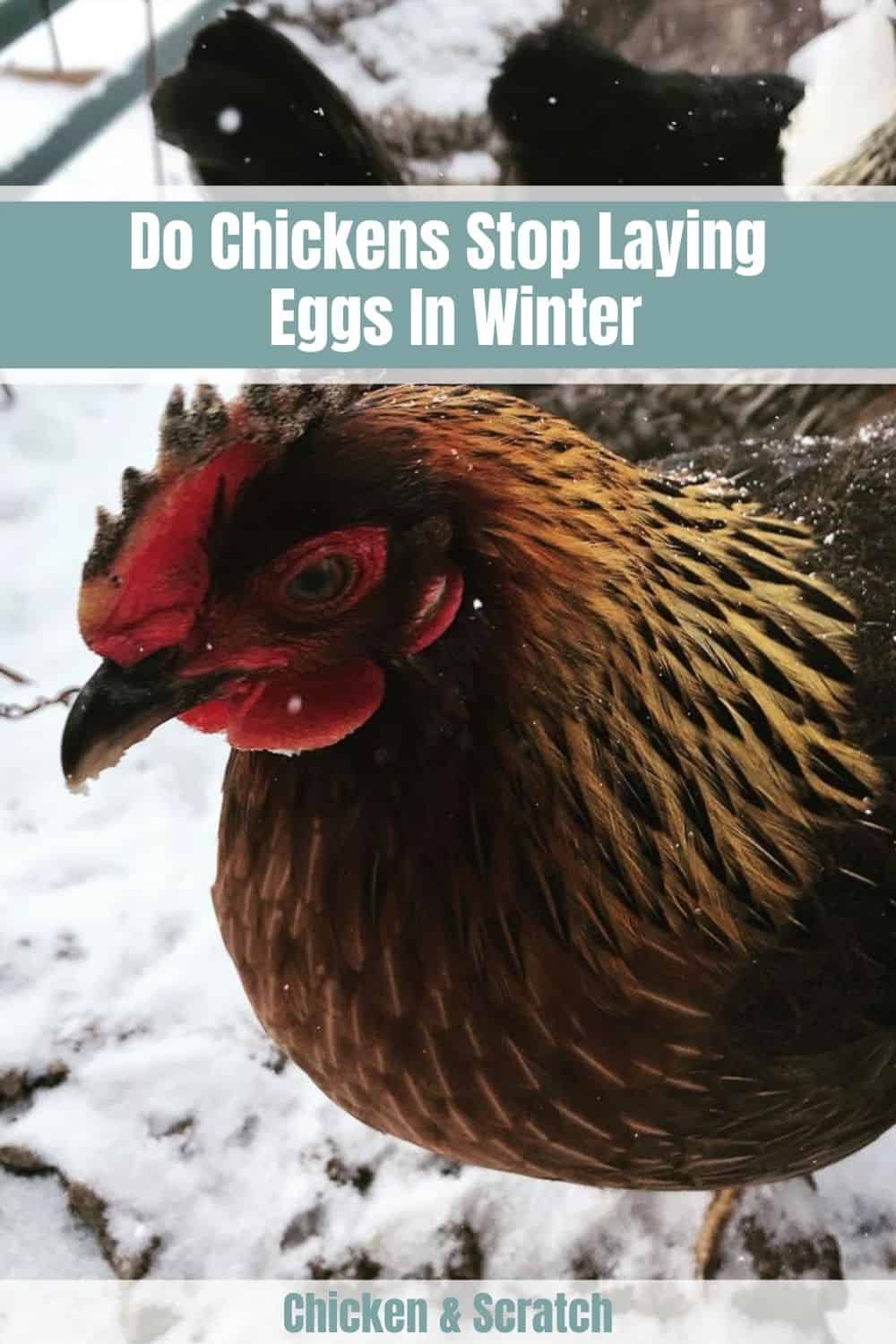







Very informative; thank you!